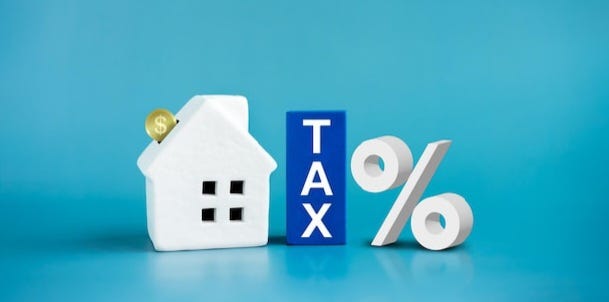Is Dominican Republic a Tax Haven?
A favorable tax environment for foreigners looking to relocate, earn money or just retire comfortably.
Is Dominican Republic a tax haven? Well, it’s not known to be as the likes of Panama, Belize, and a very select few of other countries in the world that are, but with the competitive tax breaks that Dominican Republic offers puts this Caribbean Island in the conversation. For my own reasons, I had to inquire about taxes related to real estate. At first, I was receiving inconsistent Information. So, I decided to do more research on the topic. Also, with the help at Impuesto Internos (Tax office) the clerk was patient enough to offer accurate Information on just about anything tax related, right before I paid them the mandatory 3% transfer tax. I read four different articles relating to taxes after purchasing property in Dominican Republic, and none of them mentioned this 3% tax. Hence, now I figured I'd search other aspects of taxes in Dominican Republic relating to Real Estate, Corporate, and Territorial taxes. To assist the inquiring minds, expats, nomads, investors, remote workers, and like-minded individuals with up to date accurate information regarding taxes here in Dominican Republic.
Territorial tax system
The Dominican Republic has a territorial tax system, meaning only income earned within the country is taxed. If you live in the DR but earn money from abroad like remote work, foreign investments, or pensions. If any of these apply to you, then you won’t have to pay Dominican taxes on that income.
However, if you have a business or job in the DR, that income will be taxed.
This setup is great for expats and international businesses. Here's how it works:
•Digital Nomad / Remote Worker:
You work remotely for a US company while living in the DR? You don’t pay Dominican income tax.
•Local Business Owner:
If you own any type of business in the DR, whether it's a restaurant, store, or any other local venture, you’ll pay local taxes on the income you earn inside the country. This applies to both Dominican nationals and foreign business owners operating within the DR.
•Investor with Foreign Stocks:
You earn dividends from US stocks while in the DR? No Dominican taxes on that income.
It’s a huge benefit for expats and investors who earn globally while living in Dominican Republic, meaning less to worry about when it comes to taxes.
Corporation Tax
When I started looking into the Dominican Republic’s tax system, I realized it’s competitive, though not the lowest compared to traditional tax havens. Still, some sectors enjoy major incentives.
1. Standard Corporate Tax Rate
The corporate income tax rate is 27% on net taxable income. This applies to all companies, including those owned by foreigners.
2. Tax Incentives & Lower Rates
Certain industries qualify for full or partial tax exemptions:
•Tourism & Real Estate (Law 158-01): Up to 15 years of tax exemptions for tourism-related investments like hotels and resorts. No property or transfer taxes during the exemption period.
•Free Trade Zones (FTZs) (Law 8-90): 0% corporate tax for up to 15 years if operating in an FTZ. No import duties, VAT, or municipal taxes.
•Renewable Energy (Law 57-07): Up to 100% tax exemptions on profits, equipment, and imports for solar, wind, or hydro projects.
•Startups & Small Businesses (PYMES): Small businesses can qualify for reduced tax rates and simplified reporting.
3. Other Business Taxes
•Value Added Tax (ITBIS): 18% on most goods/services.
•Dividend Tax: 10% on profit distributions.
•Withholding Taxes: 27% on payments to foreign contractors unless a tax treaty applies.
The standard 27% tax rate isn’t the lowest, but with the right sector and setup, businesses can qualify for significant tax savings. Foreigners can fully own businesses and still benefit from these incentives.
Real Estate Tax
The Dominican Republic has some major perks when it comes to real estate and residency, especially for expats, retirees, and investors looking for tax benefits. In the Dominican Republic, property tax (Impuesto al Patrimonio Inmobiliario, or IPI) applies to real estate above a certain value.
Exemption Limit:
Properties valued under RD$10 millones pesos (approx $160,000 USD) are exempt from property tax.
Tax Rate:
If your property exceeds this amount, you’ll pay a 1% annual tax on the value above the exemption limit.
First Home Benefit:
If you own only one property, you may qualify for an exemption.
No Property Tax for Agricultural Land:
Rural properties used for farming are exempt from this tax.
Property Transfer Tax:
When buying a property, there’s a 3% transfer tax.
Capital Gains Tax:
If you sell a property, you’ll face a 27% tax on the profit. For example:
•Bought for: $200,000 USD
•Sold for: $300,000 USD
•Profit: $100,000 USD
•After Deductions: $90,000 USD taxable
•Tax Due (27%): $24,300 USD
Holding onto property long-term? You can avoid capital gains tax thanks to depreciation and deductions. Knowing these taxes can help you make informed decisions when buying or selling property in Dominican Republic.
Residency Perks & Tax Exemptions:
Foreigners can apply for residency programs with serious tax benefits:
Retirees (Pensionado) with $1,500/month pensions get zero tax on foreign income, no property tax, and duty-free imports.
Investors ($200,000+ investment) enjoy the same perks.
Passive income earners ($2,000+/month) also qualify for tax exemptions.
These programs make Dominican Republic an appealing choice for retirees, investors, and passive income earners, offering an expedited path to residency and potential citizenship, along with significant tax benefits that enhance their financial opportunities.
Is Dominican Republic a tax haven? Although Dominican Republic is not classified as a tax haven, it does offer a favorable tax environment for retirees, investors, expats and passive income earners, making the DR an appealing destination for those seeking financial advantages within a balanced and regulated tax system.
Life in Dominican Republic is a reader-supported publication. To receive new posts and support my work, consider becoming a free or paid subscriber.






That question gets asked a lot about Panama as well…I have not written about it yet….but maybe check out my incredibly new (2 post) site….thanks!
You did your homework. Thank you for this information. My husband will find this invaluable while we're deciding where to relocate. He does not like my first (and really only choice) for Colombia so I suspect the Dominican is back on our radar.